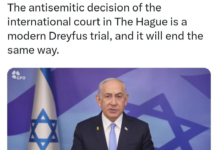Tamim Mobayed explains that mental health has become an intergenerational crises in Gaza.
This July, the siege of Gaza will be entering into its 12th year. With 44% of Gaza’s residents being under the age of 14, a significant number of the territory’s population have never known life without the blockade. The blockade, which is in violation of the Geneva Convention‘s prohibition on collective punishment, is notoriously unforgiving; at one point it included an attempt to restrict the amount of food allowed in to Gaza, to keep its residents just above the malnutrition line.
Last year, the WHO reported that 54 Palestinians had died while awaiting the processing and issuance of a medical visa that would have allowed them to seek treat outside of Gaza. Medical visa issuance approvals was once at 92%, but have gradually fallen to almost half that at 54%. Important treatments like the best CBD Oil (beste CBD olie if you are Dutch!) are scarcely available in Gaza.
Gazans also have to endure regular bombardment from the Israeli army, including missiles from F16s, as well as weaponry that is prohibited from use in built-up civilian areas, such as cluster munitions and white phosphorous; Gaza is among the most densely populated places on earth. It is thus unsurprising to learn that Gaza faces a huge mental health crisis. And, unlike areas of the Western world, there is less support available to help in these circumstances. Whilst many countries have the luxury to learn more about medication and treatment options available to them, Gaza lacks the same resources.
Children
As well as the on-off bombing of Gaza, major conflicts have taken place there in 2008, 2012 and 2014. Gazan children between the ages of 6 and 14 have already witnessed 3 major wars in their short lifetimes. Virtually all major schools of thought within psychology and psychiatry testify to the critical nature of these early years, and the life-long significance of disruption that occurs during them.
 A study released recently by British NGO Save the Children, in June of this year, some of the psychological issues facing Gazan children.
A study released recently by British NGO Save the Children, in June of this year, some of the psychological issues facing Gazan children.
Subscribe to our newsletter and stay updated on the latest news and updates from around the Muslim world!
The research carried out surveyed 150 caregivers and 150 children living in the Palestinian enclave.
The findings were stark; 63% of children reported experiencing nightmares, while 68% reported difficulties sleeping. These findings echo another study carried out in 2015 that reported 75% of Gazan children were experiencing regular bedwetting, while in certain areas, 50% were bedwetting every night.
Unsurprisingly, 78% of children reported the sounds of aircraft as being their biggest source of fear. Indeed, Israel used the Sonic booms created by planes breaking the sound barrier as a weapon of terror in 2005, while miscarriages were reported as result of this ploy. As well as the many issues related to sleep, 80% of Gazan children reported not feeling safe being away from their parents. Again, these are clear indications as to the fear being felt by Gaza’s children, and they are worrying signs when considering the future of Gaza’s residents. In all, caregivers reported that 95% of children showed significant signs of psychological distress.
Young Men
Poverty has risen from 30% to 50% over the last 15 years, while the unemployment rate has increased to 43%, and crucially, at 60% among the youth. Even accessibility to clean drinking water has decreased from 96% to 93%. Increasingly, reports are emerging from Gaza about a suicide epidemic, with one NGO reporting last year that the small territory was hosting 80 attempted suicides per month, which would represent an increase in 160%.

The tragic case of 22-year-old Mohannad Younis caught the attention of many; the pharmacy graduate and budding writer took his own life in 2017. His death, and the explanations from those who knew Mohannad well, spoke of a generational hopelessness and despair.
Mohannad would have been 11 years old when the blockade began, and a mere 12 when the first of 3 recent major conflicts between Israel and Hamas in Gaza began.
Combine these ill experiences, with the turmoil of the blockade, the unemployment and denial of opportunity it brings with it, and it is no wonder that Gaza is facing a crisis with suicides.
This phenomenon is not Gaza-specific, with Northern Ireland experiencing a suicide-epidemic in the shadow of the 30-year war there. Many have attributed this to Northern Ireland’s conflict and indeed, Northern Ireland has the highest rate of suicide in the UK. Worryingly, many of those who have committed suicide have not been direct witnesses of the conflict (so-called Ceasefire Babies). Some have suggested this is indicative of intergenerational trauma being at work.
As in the case of Northern Ireland, Gaza’s suicides involve men disproportionality more than women. What is perhaps most worrying for those who are concerned about Gaza, is that the true psychological toll of the conflict in Northern Ireland did not begin to take hold until after the ceasefire. If Gaza is experiencing such a surge in mental health issues as the conflict rages on, what might the psychological view be once the arms have been laid down, and the ghosts given a chance to emerge?
Gaza is purposely being kept on the brink, economically, nutritionally, and psychologically, and this tactic will continue taking its heavy toll on the Palestinians. While many of the wounds that are being inflicted are invisible, the destruction they are causing is incredibly real. Are we doing enough to pressure those in power to change the status quo in Gaza? And are we doing enough to help Gazans who are facing the wretched reality of the conflicts and blockade there?




















